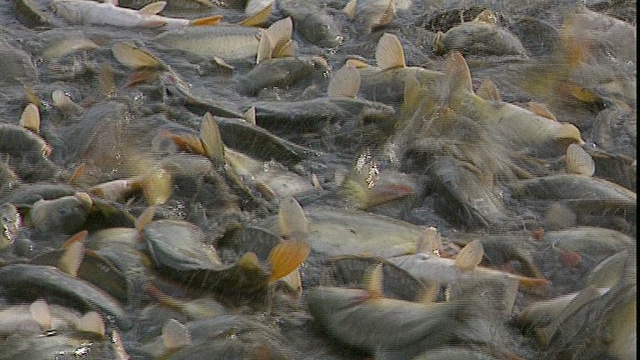Cyanide River
Europe's worst ecological disaster since Chernobyl
 We join the fishermen of Hungary as they count the costs to their livelihoods, after the worst environmental catastrophe to hit the region since Chernobyl.
We join the fishermen of Hungary as they count the costs to their livelihoods, after the worst environmental catastrophe to hit the region since Chernobyl.
When the tailings dam of the Esmeralda Explorations Gold Mine in Romania broke, it sent a torrent of cyanide and heavy metals into the Szamos and Tisza Rivers downstream in Hungary. Today both rivers are dead. The fishermen who harvested their riches must now shovel the carcasses of prime fish into skips. Fishing communities are desperate for compensation. Yet despite the evidence of disastrous pollution, officials from Esmeralda are in deep denial. It "could be increased salinity," according to the spokesperson from the mine's Australian co-owners. Yet with their stinging eyes and itchy throats the fishermen are angered by the mine rep's response. "I would start by making him a good soup of fish poisoned by cyanide and making him eat it." Up river in Romania the company are heightening the earthen banks of the mine's wastewater pools. They blame unusually heavy snow for causing the January 30th spill. To Hungary's Foreign Affairs spokesperson it's a reason but not an excuse - the banks simply should have been designed to cope. As this more recent spill demonstrates, the mining operations are unsafe. ABC Australia speaks to those involved and affected by the disaster.
FULL SYNOPSIS
Produced by ABC Australia

